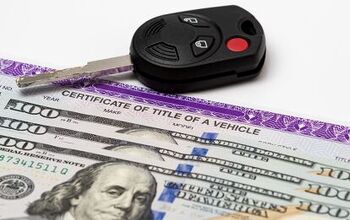Lyft Abandons Operations in California Following Court Decision

As Uber contemplates ways to avoid having to close up shop in California following the passing Assembly Bill 5, Lyft is simply suspending operations as it waits to see how the appeals process works out.
On Thursday, the fuchsia-themed ride-hailing firm said it would not be able to maintain business as usual in the Golden State, citing several of the reasons we prognosticated in yesterday’s article about Uber mulling a franchise model. Included in the release was an inability to hire enough drivers in a manner that would appease the new law, resulting in reduced service (especially in suburban and rural areas), and a pricing increase deemed unfeasible for existing customers if implemented.
Lyft said it did not want to cease offering rides in California, adding that it is committed to fighting for a benefits model that works for all drivers and passengers, but circumstances left it with precious few alternatives, none of which seem workable at present.
From Lyft:
For multiple years, we’ve been advocating for a path to offer benefits to drivers who use the Lyft platform — including a minimum earnings guarantee and a healthcare subsidy — while maintaining the flexibility and control that independent contractors enjoy. This is something drivers have told us over and over again that they want.
Instead, what Sacramento politicians are pushing is an employment model that 4 out of 5 drivers don’t support. This change would also necessitate an overhaul of the entire business model — it’s not a switch that can be flipped overnight.
It also requested customers vote on a November ballot measure (Prop 22, also backed by Uber) that allows app-based drivers to be classified as independent contractors instead of regular employees. While plenty of drivers have bemoaned stringent regulations that would prohibit their ability to work during their free time and force them into a more traditional workday, many have advocated for fairer treatment by the companies.
Since Uber and Lyft don’t allow drivers to set their own rates, classifying them as contractors is at odds with the legal definition — even though most states haven’t offered much pushback. But Assembly Bill 5 effectively requires all companies to reclassify independent staff as employees, with few exceptions. This places a legal obligation on the ride-hailing firms to provide drivers with workers comp, unemployment, paid sick/personal leave, health insurance, and more. These are things they cannot afford, especially since neither Uber or Lyft seem capable of making money without being propped up by the stock market.
[Image: Jonathan Weiss/Shutterstock]

A staunch consumer advocate tracking industry trends and regulation. Before joining TTAC, Matt spent a decade working for marketing and research firms based in NYC. Clients included several of the world’s largest automakers, global tire brands, and aftermarket part suppliers. Dissatisfied with the corporate world and resentful of having to wear suits everyday, he pivoted to writing about cars. Since then, that man has become an ardent supporter of the right-to-repair movement, been interviewed on the auto industry by national radio broadcasts, driven more rental cars than anyone ever should, participated in amateur rallying events, and received the requisite minimum training as sanctioned by the SCCA. Handy with a wrench, Matt grew up surrounded by Detroit auto workers and managed to get a pizza delivery job before he was legally eligible. He later found himself driving box trucks through Manhattan, guaranteeing future sympathy for actual truckers. He continues to conduct research pertaining to the automotive sector as an independent contractor and has since moved back to his native Michigan, closer to where the cars are born. A contrarian, Matt claims to prefer understeer — stating that front and all-wheel drive vehicles cater best to his driving style.
More by Matt Posky
Latest Car Reviews
Read moreLatest Product Reviews
Read moreRecent Comments
- Jalop1991 This is easy. The CX-5 is gawdawful uncomfortable.
- Aaron This is literally my junkyard for my 2001 Chevy Tracker, 1998 Volvo S70, and 2002 Toyota Camry. Glad you could visit!
- Lou_BC Let me see. Humans are fallible. They can be very greedy. Politicians sell to the highest bidder. What could go wrong?
- SPPPP Vibrant color 9 times out of 10 for me. There may be a few shapes that look just right in metallic gray, for example. There are a few nices ones out there. And I like VW "White Silver". But I'd usually prefer a deep red or a vibrant metallic green. Or a bright blue.
- 28-Cars-Later Say it ain't so, so reboot #6* isn't going to change anything?[list=1][*]V4-6-8 and High "Tech" 4100.[/*][*]Front wheel drive sooooo modern.[/*][*]NOrthSTARt.[/*][*]Catera wooooo.[/*][*]ATS all the things.[/*][*]We're *are* your daddy's Tesla. [/*][/list=1]


































Comments
Join the conversation
There's a business opportunity here. An enterprising business leader can start a ride sharing business where they're paid a referral fee - let's call it 25% - of the ride's total cost, while the driver takes the rest. Makes me wonder why that has not yet cropped up. With so many people saying Uber and Lyft should be shut down, I wonder what percentage of those people would be willing to pay more for a ride sharing service where the drivers earned more.
Can we stop calling them "victims"? Those all worked for HDC. Where else are you free set your own hours, days, what you drive, how you drive, etc, (up to a point)? There's plenty of conventional driving jobs everywhere. EVERYWHERE! In fact it harder to not find one. But if you're great spending less per miles driven, it can be a way better opportunity and or experience than a normal job-job driving. Freedom is the key word here.